| Visual search via smart phone based on CDVS
|
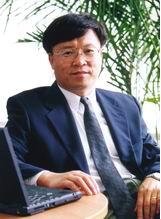
|
| Prof. Wen Gao , Peking University, Beijing, |
| Department of Computer Science and Technology |
| Academician of Chinese Academy of Engineering;Chief Scientist of the National Basic Research Program of China (973 Program);Vice President of National Natural Science Foundation of China from 2013 |
Biography
|
Wen Gao received the B.S. degree in computer science from Harbin University of Science and Technology in 1982, the M.S. degree in computer science from Harbin Institute of Technology in 1985, the Ph.D. degree in computer science from Harbin Institute of Technology in 1988, Harbin, China, and the Ph.D. degree in electronics engineering from the University of Tokyo in 1991, Tokyo, Japan.
He joined with the Harbin Institute of Technology from 1991 to 1995, as professor and head of computer science department. He was with the Institute of Computing Technology (ICT), Chinese Academy of Sciences (CAS), as professor, from 1996 to 2005. During his career at CAS, he served as the managing director of ICT from 1998 to 1999, the executive vice president of Graduate School of CAS(now the University of CAS) from 2000 to 2004, the vice president of University of Science and Technology China from 2000 to 2003.
He is working in the areas of multimedia and computer vision, including video coding, video analysis, multimedia retrieval, face recognition, and multimodal interface. He published six books and over 700 technical articles in refereed journals and proceedings in above areas. His publications have been cited for over 21,000 times according to Google Scholar.
He served or serves on the editorial board for several journals, such as IEEE Transactions on Circuits and Systems for Video Technology, IEEE Transactions on Multimedia, IEEE Transactions on Autonomous Mental Development, EURASIP Journal of Image Communications, Journal of Visual Communication and Image Representation. He chaired a number of prestigious international conferences on multimedia and video signal processing, such as IEEE ICME 2007, ACM Multimedia 2009, IEEE ISCAS 2013, and also served on the advisory and technical committees of numerous professional organizations. He earned many awards such as one second class award in technology invention by the State Council, and six second class awards in science and technology achievement by State Council.
|
| Intelligent Human Activity Detection in Smart Living
|

|
| Prof. Stephen S. Yau, Information Assurance Center, and |
| School of Computing, Informatics, and Decision Systems Engineering |
| Arizona State University, Tempe, AZ, USA |
Abstract
|
Due to the rapid progress in cost-effective smart wearable devices, Internet of Things, cloud computing, it is increasingly convenient to detect human activity continuously, which can greatly improve various aspects which are needed for smart living, such as monitoring physical conditions, providing services for health care and assisted living, and predicting human risk behaviors. In this address, the current state of the art, challenges, and future research directions for developing some of these applications in smart living will be discussed.
|
Biography
|
Stephen S, Yau is the director of Information Assurance Center and Professor of Computer Science and Engineering at Arizona State University (ASU), Tempe, Arizona, USA. He served as the chair of the Department of Computer Science and Engineering at ASU in 1994-2001. Previously, he was on the faculties of Northwestern University, Evanston, Illinois, and University of Florida, Gainesville.
He served as the president of the Computer Society of the Institute of Electrical and Electronics Engineers (IEEE) and was on the IEEE Board of Directors, and the Board of Directors of Computing Research Association. He served as the editor-in-chief of IEEE COMPUTER magazine. He organized many major conferences, including the 1989 World Computer Congress sponsored by the International Federation for Information Processing (IFIP), and the IEEE Annual International Computer Software and Applications Conference (COMPSAC) sponsored by IEEE Computer Society. He was a general co-chair of the 2014 IEEE World Congress on Services, including Cloud Computing, Web Services, Services Computing, Mobile Services, held in Anchorage, Alaska, USA.
His current research includes cloud and services computing, cyber security, software engineering, mobile ad hoc networks, ubiquitous computing and Internet-of-Things. He has received many awards and recognitions, including the Tsutomu Kanai Award and Richard E. Merwin Award of the IEEE Computer Society, the IEEE Centennial Award and Third Millennium Medal, and the Outstanding Contributions Award of the Chinese Computer Federation. He is a Life Fellow of the IEEE and a Fellow of the American Association for the Advancement of Science. He received the B.S. degree from National Taiwan University, Taipei, and M.S. and Ph.D. degrees from the University of Illinois, Urbana, all in electrical engineering.
|
| Smart Sensors - Research, Trends and Opportunities
|
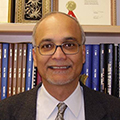
|
| Prof. M. Jamal Deen , President – Academy of Science, Royal Society of Canada; Distinguished University Professor |
| Electrical and Computer Engineering Department & School of Biomedical Engineering |
| McMaster University, Hamilton, Ontario CANADA. E-mail: jamal@mcmaster.ca |
Abstract
|
Several of the grand challenges in engineering for current and future societal needs require smart sensors. For example, in the health area, smart sensing systems are required for screening, diagnostics and monitoring of a variety of diseases and illnesses for the health of well-being of individuals. Using these screening, diagnostics and monitoring systems, it will be feasible to catch diseases in their very early stages, which in turn will significantly impact treatment and outcomes. In the health area, we discuss healthcare and aging, major healthcare issues and four examples of smart sensor systems. These sensors are for heart monitoring, a living diary, cancer screening and blood oxygenation levels. In the environmental area, smart sensors are required to, for example, monitor drinking water quality because water is a vital and necessary resource for all humans. However, chemicals and bacteria in drinking water pose significant health risks for us. Therefore, to improve the safety of drinking water, sensitive, low-cost, rapid detection methods are required for water quality monitoring. In this area, we discuss three sensitive, low-cost systems for counting bacteria and for monitoring the pH and chlorine level in drinking water. In both the health and environment areas, the sensor systems are either developed directly in standard, low-cost, deep sub-micron silicon technologies, or with technologies compatible with standard silicon manufacturing. This approach also allows us to take advantage of the inherent speed and increased integration density afforded by the state-of-the-art silicon processes while concurrently minimizing the manufacturing costs. Next, we will focus on trends in smart sensor systems. These trends will be illustrated with examples from healthcare and automotive fields, as well as for smart mobile devices and smart cities. Finally, we will discuss the role of internet-of-things for connected homes, wearables, connected cities and connected cars.
|
Biography
|
Dr. M. Jamal Deen is Distinguished University Professor, Senior Canada Research Chair in Information Technology, and Director of the Micro- and Nano-Systems Laboratory, McMaster University. His current research interests are nanoelectronics, optoelectronics, nanotechnology and their emerging applications to health and environmental sciences. Dr. Deen’s research record includes more than 500 peer-reviewed articles (about 20% are invited), two textbooks on “Silicon Photonics- Fundamentals and Devices” and ”Fiber Optic Communications: Fundamentals and Applications”, 6 awarded patents that have been used in industry, and 13 best paper/poster/presentation awards. Over his career, he has won more than fifty awards and honors.
As an undergraduate student at the University of Guyana, Dr. Deen was the top ranked mathematics and physics student and the second ranked student at the university, winning the Chancellor’s gold medal and the Irving Adler prize. As a graduate student, he was a Fulbright-Laspau Scholar and an American Vacuum Society Scholar. He is a Distinguished Lecturer of the IEEE Electron Device Society for more than a decade. His awards and honors include the Callinan Award as well as the Electronics and Photonics Award from the Electrochemical Society; the Distinguished Researcher Award from the Province of Ontario; a Humboldt Research Award from the Alexander von Humboldt Foundation; the Eadie Medal from the Royal Society of Canada; McNaughton Gold Medal (highest award for engineers), the Fessenden Medal and the Ham Education Medal, all from IEEE Canada IEEE Canada In addition, he was awarded the three honorary doctorate degrees in recognition of his exceptional research and scholarly accomplishments, professionalism and service. Dr. Deen has also been elected Fellow status in ten national academies and professional societies including The Royal Society of Canada - The Academies of Arts, Humanities and Sciences (the highest honor for academics, scholars and artists in Canada), IEEE, APS (American Physical Society) and ECS (Electrochemical Society). Currently, he is serving as the elected President of the Academy of Science, The Royal Society of Canada.
|
| Big Earth Data Computing: Understanding the Unobserved
|
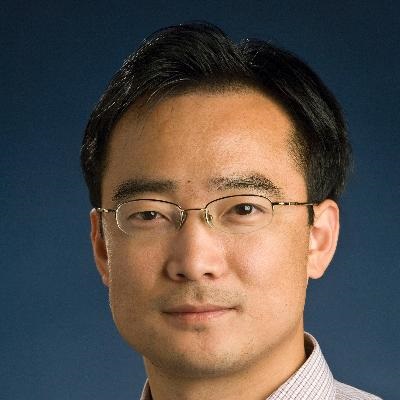
|
| Prof.Lizhe Wang , “ChuTian” Chair Professor at School of Computer Science, China Univ. of Geosciences (CUG) |
| Professor at Inst. of Remote Sensing & Digital Earth, Chinese Academy of Sciences (CAS) |
Abstract
|
Earth system is a highly complexed, highly uncertain huge system.
People’s understanding on earth system is very limited due to spatial and temporal obstacles.
In addition to modeling and simulation, big data computing in geosciences will bring opportunities to understanding complex phenomenon via analyzing multi-sourced heterogeneous and non-stationary big earth data.
|
Biography
|
| Lizhe Wang is a “ChuTian” Chair Professor at School of Computer Science, China Univ. of Geosciences (CUG), and a Professor at Inst. of Remote Sensing & Digital Earth, Chinese Academy of Sciences (CAS). Prof. Wang received B.E. & M.E from Tsinghua Univ. and Doctor of Eng. from Univ. Karlsruhe (Magna Cum Laude), Germany. Prof. Wang is a Fellow of IET, Fellow of British Computer Society. Prof. Wang serves as an Associate Editor of IEEE T. Computers, IEEE T. on Cloud Computing, IEEE T. on Sustainable Computing. His main research interests include Cloud Computing, e-Science, and remote sensing image processing.
|
| Urban Computing: Using Big Data to Solve Urban Challenges
|
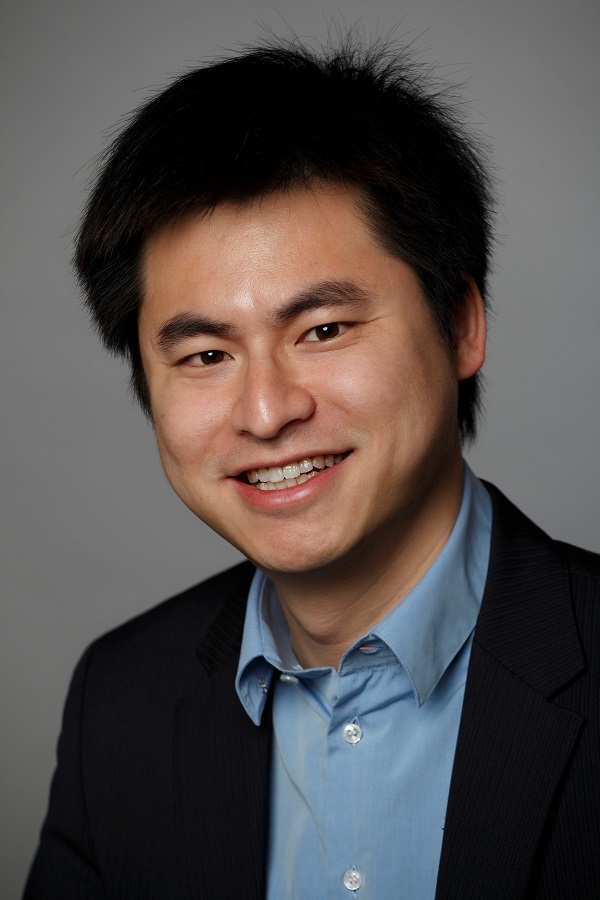
|
| Dr.Yu Zheng , Lead Researcher and Research Manager from Microsoft |
| Urban Computing Group, Microsoft Research |
| Affiliate Member of Ubiquitous Computing Group |
Abstract
|
Urban computing is a process of acquisition, integration, and analysis of big and heterogeneous data generated by a diversity of sources in cities to tackle urban challenges, e.g. air pollution, energy consumption and traffic congestion. Urban computing connects unobtrusive and ubiquitous sensing technologies, advanced data management and analytics models, and novel visualization methods, to create win-win-win solutions that improve urban environment, human life quality, and city operation systems. Urban computing is an inter-disciplinary field where computer science meets urban planning, transportation, economy, the environment, sociology, and energy, etc., in the context of urban spaces. In this talk, I will overview the framework of urban computing, discussing its key challenges and methodologies from computer science’s perspective. This talk will also present a diversity of urban computing applications, ranging from big data-driven environmental protection to transportation, from urban planning to urban economy. The research has been not only published at prestigious conferences but also deployed in the real world. More details can be found on http://research.microsoft.com/en-us/projects/urbancomputing/default.aspx
|
Biography
|
| Dr. Yu Zheng is a research manager from Microsoft Research, passionate about using big data to tackle urban challenges. One of his project, entitled Urban Air, has been deployed with the Chinese Ministry of Environmental Protection, predicting air quality for over 300 Chinese cities. Zheng currently serves as the Editor-in-Chief of ACM Transactions on Intelligent Systems and Technology and a member of Editorial Advisory Board of IEEE Spectrum. He is also the founding secretary of SIGKDD China Chapter. Zheng publishes referred papers frequently as a leading author at prestigious conferences and journals, such as KDD, VLDB, UbiComp, and IEEE TKDE, where he has received five best paper awards. His book, titled “Computing with Spatial Trajectories”, has been used as a text book in universities world-widely and awarded the Top 10 Most Popular Computer Science Book authored by Chinese at Springer. Zheng has served as chair on over 10 prestigious international conferences—most recently, as the program co-chair of ICDE 2014. In 2013, he was named one of the Top Innovators under 35 by MIT Technology Review (TR35) and featured by Time Magazine for his research on urban computing. In 2014, he was named one of the Top 40 Business Elites under 40 in China by Fortune Magazine, because of the business impact of urban computing he has been advocating since 2008. Zheng is also a Chair Professor at Shanghai Jiao Tong University, an Adjunct Professor at Hong Kong University of Science and Technology, and Hong Kong Polytechnic University.
|
| Towards the Real-Time Cyber Physical Systems for Smarter Living and Production Facilities
|
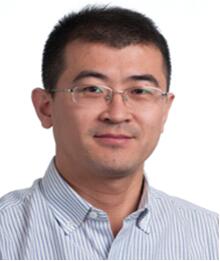
|
| Dr. Zhibo Pang , Senior Scientist ABB AB, |
| Corporate Research Forskargränd 7, 72178, Västerås, Västmanland, Sweden |
| e-mail: pang.zhibo@se.abb.com |
Abstract
|
The big efforts from industries towards the Internet of Things, Services and People (IoTSP) and Industry4.0 are making living and production facilities smarter. Despite the diversity of specific solutions, the primary shared feature of the new generation of smart facility is the tight combination of computation, networking, and physical processes. Therefore the emerging paradigm of Cyber-Physical Systems (CPS) will be the foundation. In CPY, computational elements monitor and control the physical elements through high performance networks with feedback loops where physical processes affect computations and vice versa. It is not only an opportunity but also huge challenge to fulfill the demanding users of such smart living and production facilities.
Today, we have seen some pre-cursor CPS examples in the areas like space, avionics, automotive, chemical processes, civil infrastructure, energy, healthcare, manufacturing, transportation, entertainment, and consumer appliances. To delivery enough business values, the CPS solutions have to provide real-time, reliable and deterministic computation and communication to effectively control the physical loops with short time constant. Additionally, we have to apply more complicated AI (artificial intelligence) algorithms for sufficient smartness, deploy the solution through cloud to cover highly distributed facilities, and adopt wireless communications to reach mobile objects and harsh environments. All these requirements are pulling the evolution from conventional CPY to the Real Time CPS (RT-CPS), which is motivating the emerging technologies like edge computing, 1ms internet, hard real time wireless communications, centimeter level indoor localization, etc. In this presentation, I will overview the details requirements and challenges by practical use cases of RT-CPS in process industry, factory automation, cloud robotics, smart buildings, and power systems. The latest progresses on wireless communications with ultra-high performances e.g. Gbps level data rate and sub-us level latency, will be introduced as well.
|
Biography
|
Dr. Zhibo Pang (Senior Member IEEE) received B.Eng. in Electronic Engineering from Zhejiang University, Hangzhou, China in 2002, MBA in Innovation and Growth from University of Turku, Turku, Finland in 2012, and PhD in Electronic and Computer Systems from the Royal Institute of Technology (KTH), Stockholm, Sweden in 2013. He is currently a Senior Scientist and Project Manager on Industrial IoT and Buildings at ABB Corporate Research, Västerås, Sweden, leading research projects on real-time industrial wireless communications, high accuracy localization, IP-based convergence of communications, and vertical solutions for smart homes and buildings, factory and manufacturing, and power systems. He is also serving as Adjunct Professor or similar roles at universities such as Royal Institute of Technology (KTH), Sweden, Tsinghua University, China, and Beijing University of Post and Telecommunication (BUPT), China. He is a Senior Member of IEEE and serves as Chair of Sub TC in the Technical Committee on Industrial Informatics, and Vice Chair of Sub TC in the Technical Committee on Cloud and Wireless Systems for Industrial Applications, Industrial Electronics Society of IEEE. He is serving the editorial boards of the Journal of Management Analytics (Taylor & Francis), and the Journal of Industrial Information Integration (Elsevier). His current research interests include the real-time cyber physical systems, Internet-of-Things, wireless sensor network, industrial communication, real time embedded system, enterprise information systems, automation networks, multicore system-on-chip and network-on-chip. He also works on the business-technology joint research such as strategy, business model, value chain, and entrepreneurship.
Dr. Zhibo Pang led the productization of the world first single chip DVB-S receiver SoC in 2005, conceptualized and demonstrated for the first time the Intelligent Medicine Box for in-home healthcare in 2009, developed one of the earliest functional implementations of WirelessHART stack for industrial wireless sensor networks in 2012, and demonstrated centimeter level accuracy in-door localization as industrial infrastructure with the world-wide leading performances in 2014. He has 25+ patents and 13+ refereed journal papers and 40+ conference papers. He won the National Great Invention Award of China in 2005, the First Place Prize of the RFID Nordic EXPO in 2008, and the Outstanding Paper Awards in ICACT2013.
|
|

